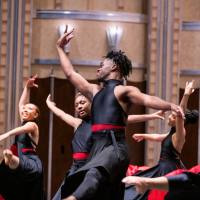I’m an avid, daily reader of ArtsJournal, Douglas McLennan’s one-stop electronic newsletter that collects news and blogs from worldwide media and keeps me informed on relevant issues in the arts. Today, the always interesting Andrew Taylor’s Artful Manager blog pulls together some thoughts on a rather scary but important topic: that the life and times of the last 50 years (1952 – 2000 or so) was an historical aberration in American life and that the arts enjoyed a period of ascendancy during this time that never was before and never will be again.
Since most of us grew up and have lived our professional lives in this period, to think that what we knew will never again be, and that what we know will not, even cannot, provide guidance for dealing with a world changed by the recession, is worrisome, if not downright depressing.
If this notion that we have been living in an aberrant historical reality is true, what does this mean for the arts? Indeed, what does it mean for all nonprofits and the philanthropic infrastructure on which they all depend?
Business consultant Neill Archer Roan discusses a Harvard Review article, The Quest for Resilience by Gary Hamel and Liisa Valikangas. Hamel and Valinkangas offer an observation about this ‘aberrant period’ that nonprofits would be well advised to consider.
“… successful organizations resist change and falter. They deny warning signals. Their success has taught them that they have good judgment, that their models of reality are coherent and accurate, that their strategic ‘gut’ is superior. What they know obscures what they need to learn.”
For nearly all of the past five decades the arts and their funders have been obsessed with capacity-building – first for growth (called advancement and focused on improving artistic excellence) and more recently for sustainability – which also included expectations for advancement/growth; in audiences and in technological, professional management and financial capacities.
Both funders and organizations have been dancing the dance of advancement for a long time. But the world has changed. If it will never again be the way it was, and all our lessons from the past cannot provide a guide to the future, how do we plan? What do we need to learn? What must we “un-learn” in order to approach the future with eyes open and a fresh and flexible attitude of what might be?
If advancement is not the expectation, what is? Retreat? Downsizing? Popularizing?
Or, rather than advancement, maybe the future holds expansion for the arts. Expansion of a more global view of human culture. Expansion into the realm of more active participation in the arts, rather than passive appreciation. Expansion of the value and role of creativity in business, education, politics and human affairs.
It is clear that we go forward into a changed and unknown reality. And when the future is unknown, one must make the effort to dream a new and better reality into existence.
